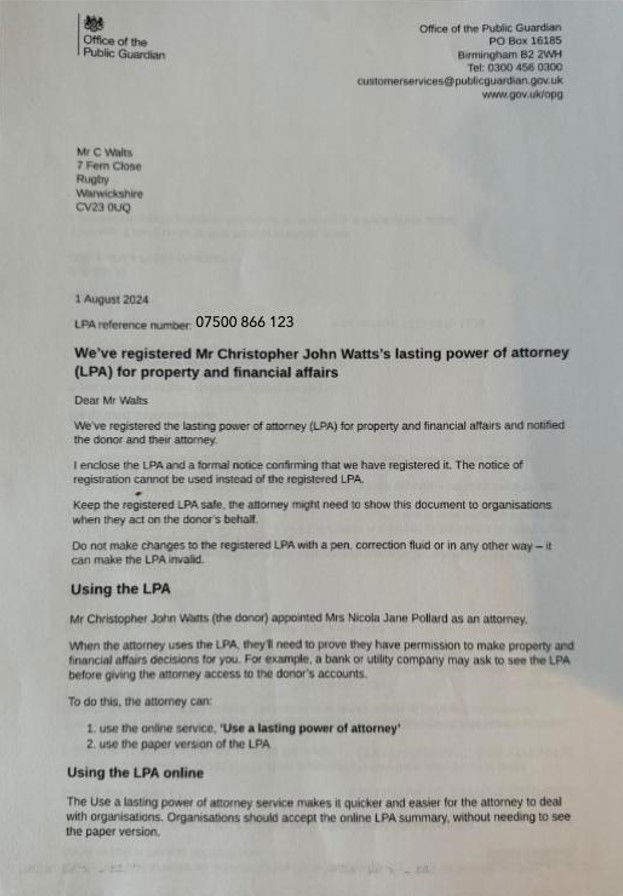FAQs
These are common questions regarding Wills, Trusts and Powers Of Attorney. All answers are simplified for the article; please get in touch with us directly for a fuller and personalised answer. No content on this website is advice.
Q) Does a Lasting Power Of Attorney (LPA) override a Will?
A) No. An LPA empowers attorneys to make decisions whilst you are alive; the Will empowers Executors to make decisions about your estate you have died, and Trustees make decisions regarding Trusts. The same person can and often does fulfil all three roles. However, none can change your Will (except by dead of variation).

Q) Do I need a solicitor to write a Will?
A) No. However, using a Qualified professional is strongly recommended.

Q) What does Martin Lewis say about powers of attorney?
a) Everyone over 18 should consider having one. See separate page for video.

Q) Can I sell my mother's house with a power of attorney?
A) Yes. If a Property & Financial Affairs LPA or a General Power Of Attorney without property sales restrictions. There may need to be more than one attorney.

Q) Do you need to probate if there is a Will?
A) If you have been named as an executor in someone's will, you may need to apply for probate. Probate is a legal document that grants you the authority to distribute the deceased person's estate according to the instructions in the will. It's important to note that probate is not always required to manage the estate.

Q) Can an executor be a beneficiary?
A) An executor can also be a beneficiary and a trustee. The role of an executor is a serious one which carries a lot of responsibility. When choosing your executor or executors, you need to bear this in mind. It should be someone you trust to carry out this work.


